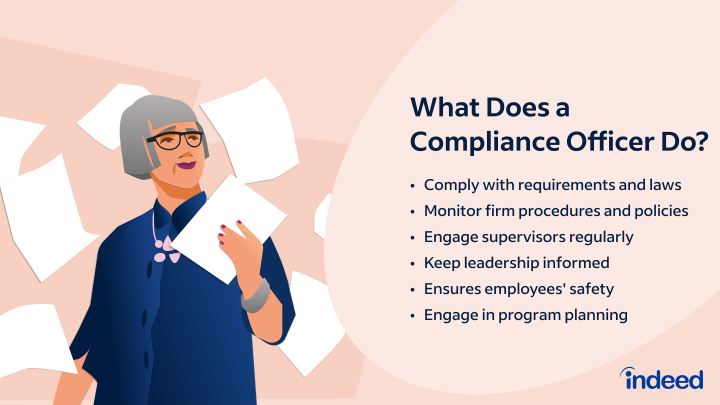What are the Key Chief Compliance Officer Duties in Financial Firms?

A robust compliance program is essential for any financial services firm to manage regulatory risk and uphold ethical standards.
At the helm of this program is the Chief Compliance Officer (CCO), a pivotal role tasked with overseeing policies, monitoring for misconduct, and fostering a culture of integrity.
So, what does a CCO do on a day-to-day basis? In this article, we’ll explore the key responsibilities and duties of a CCO within financial firms.
Designing and Implementing Compliance Policies and Procedures
One of the most important duties of a CCO is to develop comprehensive policies and procedures that provide clear guidelines for employee conduct. This includes drafting codes of ethics, conflict of interest policies, insider trading procedures, anti-money laundering protocols, and other standards based on applicable laws and regulations. The CCO is responsible for tailoring compliance policies to the specific business activities, size, and risk profile of the firm.
We assist clients in performing gap analyses to identify areas where new or updated policies may be needed. With our expertise, we help craft detailed policies that are practical and actionable for employees. The CCO must also implement appropriate procedures to operationalize these policies through training, monitoring, reporting channels, and disciplinary measures. Their goal is to embed compliance throughout all business units and operations.
Conducting Risk Assessments and Audits
A crucial aspect of the CCO’s role is to identify and analyze compliance risks facing the organization continually. This involves regular reviews of the firm’s business activities, clients, third-party relationships, and transactions to pinpoint potential issues or gaps. We guide clients in performing thorough risk assessments across all operations and functions. The CCO is then responsible for addressing any vulnerabilities uncovered through corrective actions like policy enhancements, training, or controls.
Related to risk assessment is the compliance audit function. The CCO develops risk-based audit plans to test operational adherence to policies and procedures. Our team helps clients scope out their audit universe, prioritize higher-risk areas, and establish audit schedules. We also assist in conducting mock audits to assess preparedness. Any deficiencies found during audits must be remediated under the CCO’s oversight.
Monitoring Compliance and Reporting
Ongoing monitoring is essential for an effective compliance program. The CCO implements systems to track compliance with policies, procedures, and applicable regulations. This includes collecting and analyzing metrics, reports, complaints, and other information to detect red flags or anomalies. Our team aids clients in leveraging regulatory technology and tools to enhance monitoring capabilities.
The CCO provides regular reports to senior management and the board on compliance risks, audit findings, incidents, regulatory changes, and program effectiveness. We help clients establish reporting cadences and formats tailored to their governance needs. Keeping leadership apprised of compliance matters is key for the CCO role.
Managing Relationships with Regulators
Financial firms are subject to oversight by various regulators that conduct examinations. The CCO serves as the main liaison between the firm and its regulators, building open and cooperative relationships. When regulatory inquiries or exams occur, the CCO manages the information requests and interfaces with examiners.
Our team has extensive experience engaging with regulators on behalf of clients during exams or investigations. We help clients prepare for meetings, collect requested documents, coordinate responses, and advocate for the firm. Maintaining positive regulator relationships is a key CCO duty.
Overseeing Training and Communications
To promote compliance awareness, the CCO is tasked with developing training programs for employees on policies, procedures, regulations and ethical expectations. We assist clients in designing engaging, effective training customized to different roles and risk profiles. The CCO also oversees firm-wide communications to reinforce standards and provide compliance reminders.
Additionally, the CCO establishes reporting channels for employees to voice concerns, such as whistleblower hotlines safely. Our team helps implement hotline best practices and protocols. Maintaining open communication and education on compliance is imperative.
Providing Reasonable Assurance to Senior Management and the Board
A Chief Compliance Officer is tasked with the crucial responsibility of providing reasonable assurance to senior management and the Board that the organization has effective and efficient policies and procedures in place. This involves ensuring that these policies and procedures are well understood and respected by all employees and that the company is in compliance with all regulatory requirements.
The CCO must report directly to the Chief Executive Officer and inform the Board about important issues and material violations. This role is vital for maintaining the integrity of the organization’s compliance framework and for fostering a culture of compliance and ethics within the organization.
Overseeing the Vendor Compliance Oversight Program
Another significant duty of the CCO that the article does not discuss is overseeing the vendor compliance oversight program. This involves ensuring that all third-party vendors and partners the organization works with are in compliance with relevant laws, regulations, and standards.
The CCO must implement measures to assess and monitor the compliance status of these vendors, which may include conducting audits, reviewing policies, and ensuring that any non-compliance issues are addressed promptly. This role is crucial for mitigating risks associated with third-party relationships and ensuring that the organization’s compliance standards are upheld across all its operations and partnerships.
Investigating SEC Violations
Despite best efforts, compliance incidents may still occur. It is the CCO’s responsibility to implement controls for detecting misconduct and oversee prompt investigations. When potential violations surface through monitoring, audits, complaints, or other means, we guide clients in conducting thorough, objective investigations to determine if infractions occurred.
Based on investigation outcomes, the CCO recommends corrective or disciplinary actions to remediate issues and prevent recurrences. Handling compliance incidents, no matter how minor, is a key duty of the CCO. Proper reporting to regulators may also be required.
Partner with Experienced Compliance Professionals
The compliance attorneys at My RIA Lawyer provide CCOs and financial services firms with practical guidance in executing these vital responsibilities.
They offer tailored tools and resources to help compliance officers strengthen ethical cultures and avoid costly missteps. Visit My RIA Lawyer online at https://www.myrialawyer.com/contact-us/ to discuss how they can support your compliance program.




